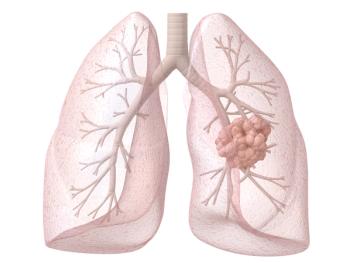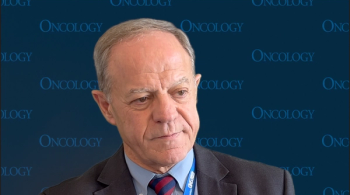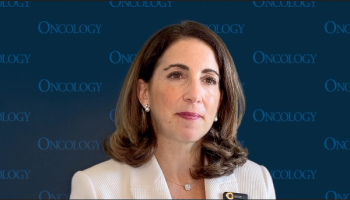
Although the study was underpowered due to a small sample size, nonsignificant improvements in functional and social well-being occurred with MOST-S26.

Your AI-Trained Oncology Knowledge Connection!


Although the study was underpowered due to a small sample size, nonsignificant improvements in functional and social well-being occurred with MOST-S26.

Biomarker analyses and real-world comparisons to refine patient selection are ongoing in the phase 2 PLUME trial.

The safety profile of palazestrant plus ribociclib in a phase 1b trial was comparable to prior reports of each individual agent.

Experts highlight the top 5 presentations from ESMO 2025 that may have long-term clinical implications for genitourinary cancer management.

The 24-month RFS rates were 95.1%, 81.2%, 69.4%, and 48.4% in patients with stage III melanoma who experienced a pCR, near pCR, pPR, pNR, respectively.

Phase 2 data showed no dose-limiting toxicities with EIK1001 plus pembrolizumab in patients with advanced non–small cell lung cancer.

Phase 3 data demonstrate PD-L1 positivity and BRCA mutation status as prognostic for improved overall survival regardless of treatment arm.

Three GI cancer medical oncologists discuss the most significant abstracts in GI cancers from the 2025 ESMO Congress.

Data from a phase 2 study support further development of sacituzumab tirumotecan plus pembrolizumab in metastatic castration-resistant prostate cancer.

Presenting investigators at ESMO Congress 2025 highlight findings from clinical trials assessing novel therapeutics across different disease types.

Data from the REZILIENT2 trial show meaningful intracranial activity in patients with NSCLC harboring EGFR exon 20 insertions or other uncommon mutations.

Immunotherapy-based combinations may elicit a synergistic effect that surpasses monotherapy outcomes among patients with muscle-invasive bladder cancer.

Findings from the RATIONALE-312 trial support tislelizumab plus chemotherapy as a frontline treatment option in extensive-stage small cell lung cancer.

ESMO Congress 2025 included a variety of presentations that may change the treatment paradigm in lung cancer, breast cancer, and other types of disease.

Although survival outcomes were numerically improved with ROS1-targeted therapies, an unmet need remains for patients with ROS1-mutated advanced NSCLC.

Sacituzumab govitecan plus pembrolizumab reduced symptom burden and improved functioning across multiple domains in the KEYNOTE-D19 study.

Approximately half of the patients who received raludotatug deruxtecan in the phase 2/3 REJOICE-Ovarian01 trial achieved an objective response.

Administering oral SERD-based regimens may enhance patients’ quality of life when undergoing treatment for ER-positive, HER2-negative breast cancer.

The BURAN trial revealed no overall survival benefit for buparlisib and paclitaxel in recurrent head and neck cancer, despite some response rate improvements.

With a median follow-up of 50.1 months, nivolumab plus ipilimumab achieved a median PFS of not reached compared with 60.8 months with nivolumab monotherapy in this CRC population.

The overall survival benefit with the bemarituzumab combination in the phase 3 FORTITUDE-101 trial was consistent across key prespecified subgroups.

The confirmed ORR in the investigational arm was 52.3% vs 46.6% in the chemotherapy arm, with respective complete response rates of 10.9% and 8.5%.

Alectinib exhibited a CNS DFS improvement, with a 63% reduction in the risk of this event, and 4-year CNS DFS rate was 90.4% vs 76.1% with chemotherapy.

A novel cancer vaccine, IO102-IO103, combined with pembrolizumab, showed promising results in improving PFS for advanced melanoma.

Data from the KEYNOTE-671 trial support the use of pembrolizumab among patients with non–small cell lung cancer in the perioperative setting.

Data from the STELLAR-303 trial support zanzalintinib plus atezolizumab as a potential chemotherapy-free option in previously treated metastatic CRC.

The safety profile of telisotuzumab adizutecan was manageable in pancreatic ductal adenocarcinoma, consistent with its profile in other tumor types.

Datopotamab deruxtecan significantly enhanced survival rates in first-line treatment for metastatic triple-negative breast cancer.

Previous results from the study found improvement in the primary end point of PSA-PFS with apalutamide in recurrent prostate cancer.

Trastuzumab rezetecan may represent a promising practice-changing therapeutic in this breast cancer population based on data from HORIZON-Breast01.